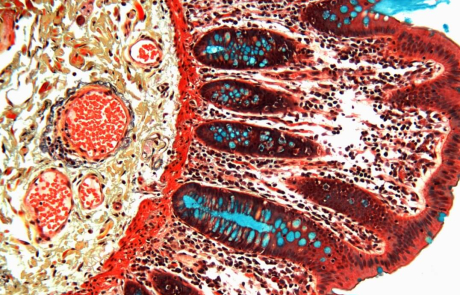
Three Sisters Honor Their Mother
Three sisters, Jeanne, Marilyn and Carol Kleyn, all joined the early research project SERA and the follow-up TIP-RA study. Their mother Peggy Kleyn was diagnosed with RA around 76 years of age.

Exciting Breakthroughs in Preventing Rheumatoid Arthritis
What does it mean when scientists say they want to “prevent” a disease?

Twin Boys Help Find Answers for Peanut Allergies
Most parents would expect their six-year-old twin boys to have safe, carefree and somewhat similar childhood experiences. Imagine their surprise when Rachael Crickman and Stephanie Cooper learned their son Zephyr had a severe food allergy, while his twin brother, Zachary, did not.

Turning Her Diabetes into a Career: 5 Questions with Kendra Baldwin
"I was 18 and an undergraduate at the University of Washington. I was a member of the women’s rowing team and majoring in public health at the same time I was learning how to manage this new disease."

Diabetes for Life. But King for a Day.
We survive with modern medicine. It has to be said. Peter and his squad of bad-ass dia-buddies are blessed with insulin, technology and care that have changed what it means to live with Type 1 Diabetes. And, they have reason to hope that the future will bring even better tools and outcomes.

What is Type 1 Diabetes?
Frequent urination, dry mouth and unexplained weight loss are common symptoms of type 1 diabetes (T1D). Also called juvenile diabetes, T1D affects nearly one million Americans and usually occurs in children or young adults.

Can You Improve Your Gut Microbiome?
There are around 40 trillion bacteria in your body, most of which are in your intestines. Collectively, they are known as your gut microbiota, and they are hugely important for your health. However, certain types of bacteria in your intestines can also contribute to autoimmune diseases.

Your Guts & Autoimmune Disease
A microbiome is a collection of microorganisms that create a “mini-ecosystem” – and there are 100 trillion bacteria inside your intestinal tract! Many gastrointestinal (GI) bacteria live in the gut and help with digestion.

Illuminations Luncheon Highlights Fight Against Immune System Diseases
Nearly 400 guests learned about the breakthrough medical research in fighting allergies and autoimmune diseases during the Illuminations Luncheon on Oct. 27 at the Sheraton Seattle Hotel.

Diagnosing Autoimmune Diseases
Being diagnosed with an autoimmune disease, such as lupus, MS or Crohn’s disease, can be a challenging journey.


